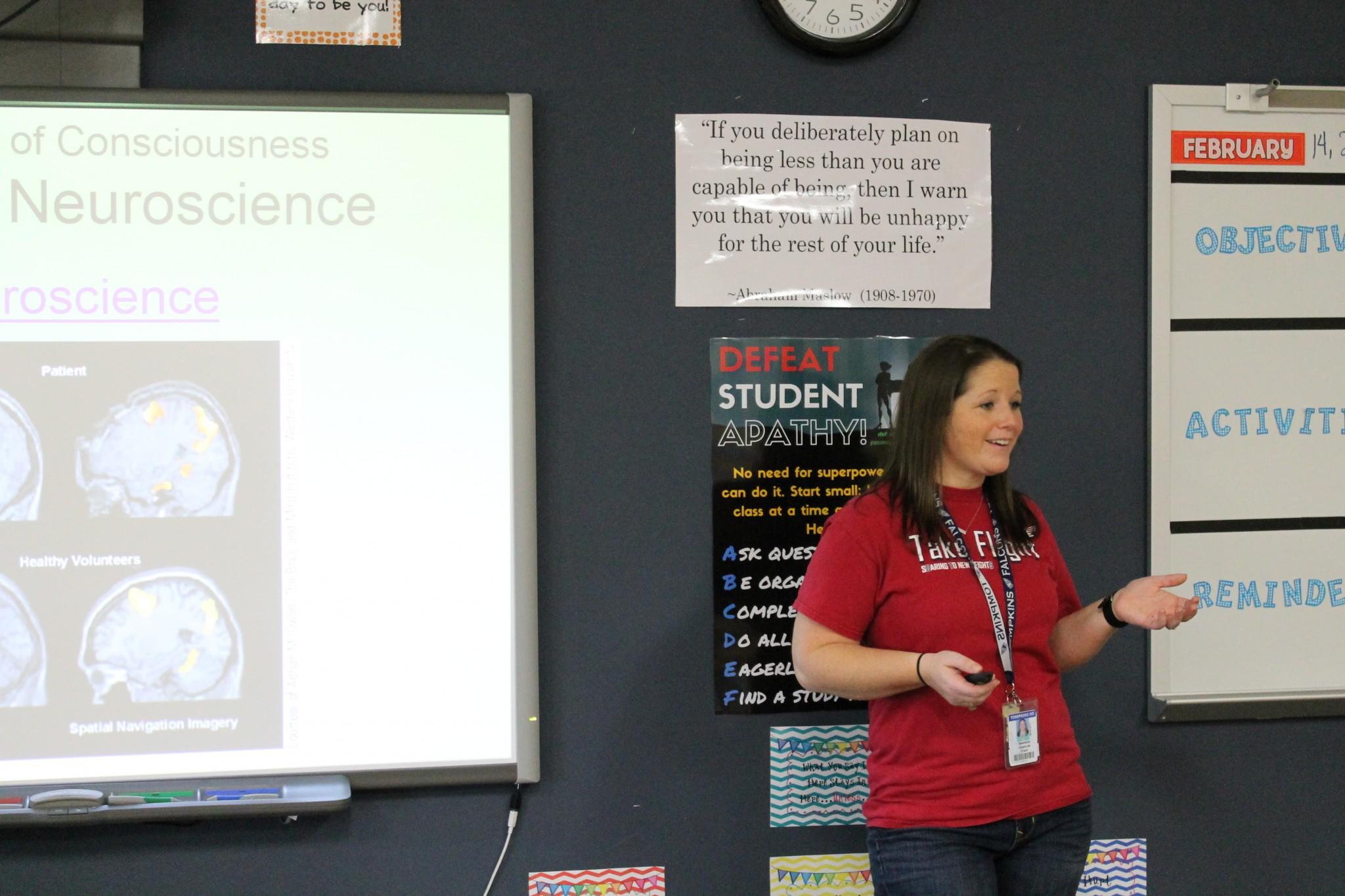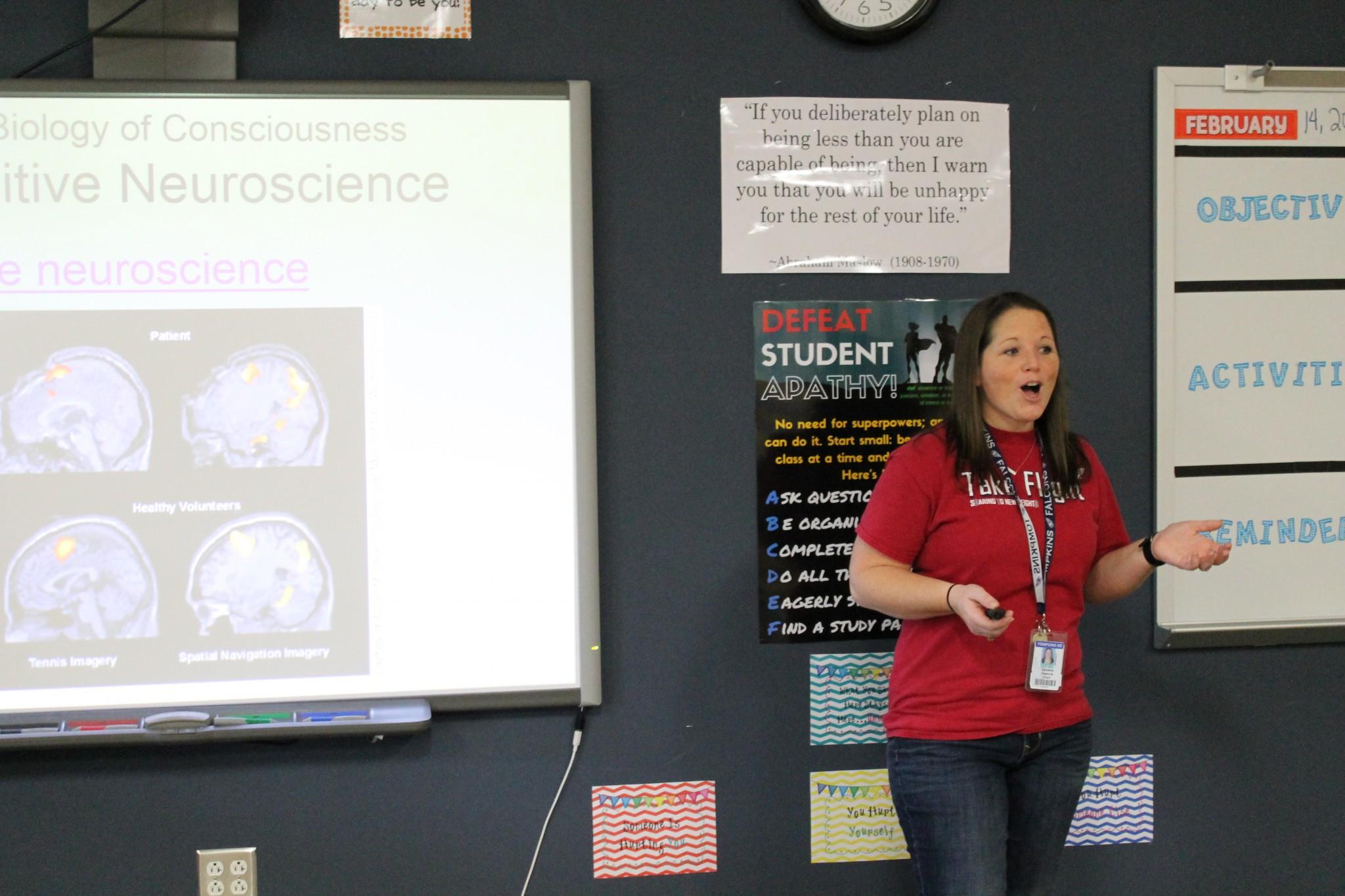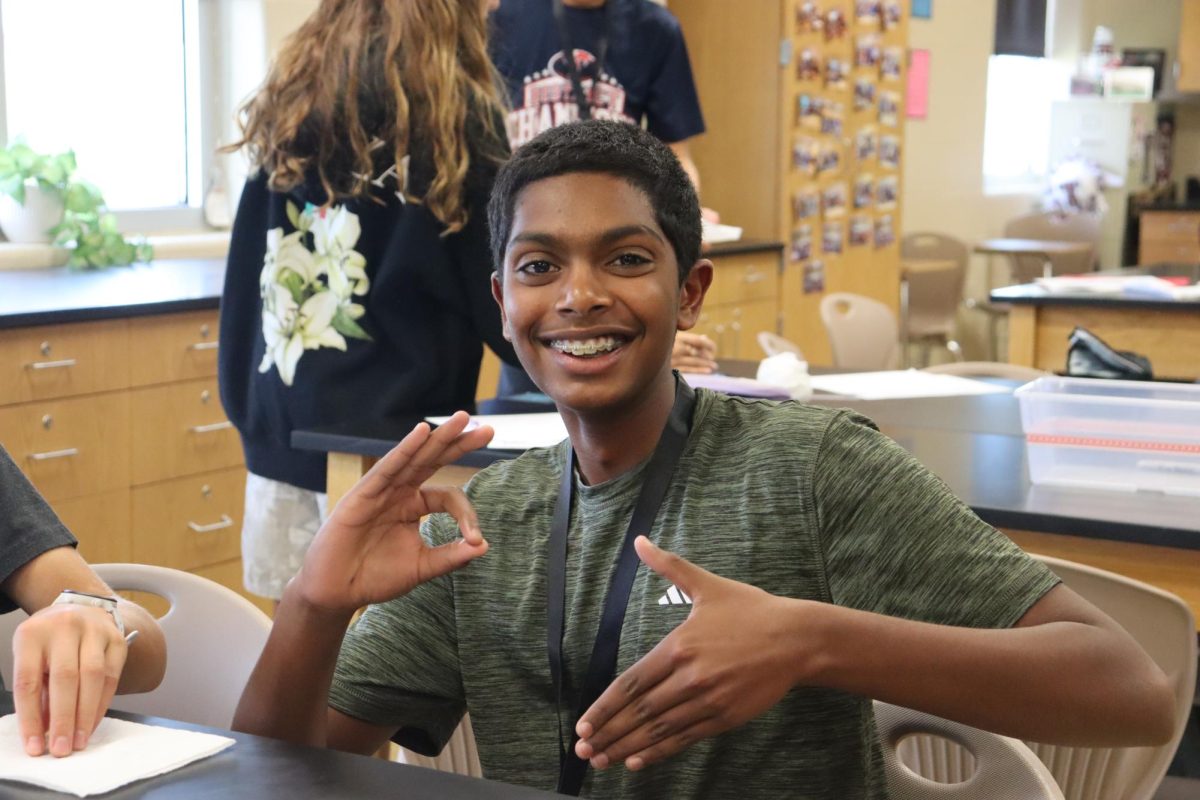It was the first day back from winter break. Amanda Sandlin sat at the front of the classroom, eyes glistening with excitement that the students could barely muster seeing as they had woken up a mere 30 minutes ago. However, the students were cautious as they knew all too well that a ‘not-so-great’ teacher can easily stomp out any passion one has for a particular subject. Although the way Sandlin started that period struck a chord in the students that woke them up like a bucket of ice water. “I’m teaching my dream job here, guys,” rang through their ears.

“I was always interested in Psychology. I took it as an elective in high school and was lucky enough to have an awesome teacher, Mr. Fisher. He really made the learning fun and taught me some new topics that I had not been exposed to yet,” said Sandlin, AP Psychology teacher.
Some might call this dramatic, but students should appreciate when one is presented the opportunity to learn something from someone who displays so much passion on their position in life. These people tend to offer terrific advice on finding one’s niche, sticking to their path even when it gets rough, or where to start when beginning that path. Not only can they provide advice but their trials and tribulations can be used by students as guidance on how to pursue one’s own passion.
“I was never going to be a teacher. My mom is a teacher and I wanted nothing to do with it. I threw away all the personality and aptitude tests that said this was my strongest profession. I was smarter than those tests. I graduated from A&M and went to work in the business world in Dallas. Within nine months, I realized I hated my life and needed to make a change. I realized I was only happy when training new employees. I finally gave in and applied to a Master’s Program in Curriculum and Instruction,” said Sandlin.

Much like Sandlin’s story, it might take time and determination to find that niche in life. However, all of these experiences will only prepare students for when the moment finally arrives, and these experiences can be drawn from to better one’s self as a person, employee, or simply someone trying to find what is meaningful to them in life. Sandlin provides a terrific example of how students can do anything they set their minds to by letting one’s passion flourish into something that one gets to express each and every day.
“I had to work eight years in social studies before I actually had an opportunity. I taught 8th grade U.S. History, World History, Pre-AP World History, Economics, AP Economics and modified U.S. History before I was given the ability to teach one Psychology and one Sociology,” said Sandlin.
Lastly, finding one’s passion in life is not always a simple task, nor should it be. There should be errors, missteps and lessons to be learned because in the end it all helps everyone the same way. A strong passion that someone genuinely loves gets others excited for it, encourages interaction and energizes those who notice the time one puts into their craft.
“I think we always think, ‘things will get better if or when something happens’. I know I did this throughout my early career. I love my job and I’m happy to come to work, but it’s still hard. It’s hard to see students struggle or in pain, it’s hard to work on nights and weekends at the expense of family time. It’s hard, but it’s worth it. While an end goal, dream job for example, is always important, we shouldn’t expect to coast through the rest of life,” said Sandlin.





